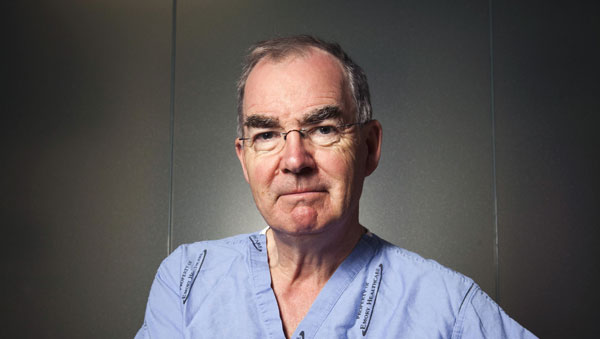NeoControl
Magnetic Therapy Improves Pelvic Muscle Strength and Lessens Incontinence
If only all exercise were this easy.
Emory physician scientists Charles Epstein, MD and Niall Galloway, MD have developed a treatment for urinary incontinence in women involving high-tech magnetic therapy that functions like an automatic Kegel muscle exercise machine.

Charles M. Epstein, MD
Urinary incontinence affects 17 million Americans, 85 percent of whom are women. The problem can result from normal aging, as well as from childbirth, injuries, infections, surgery, and hormonal changes. The consequences can range from inconveniences such as carrying an extra set of clothes to avoiding social situations or travel.
Until recently, performing muscle squeezes called Kegels; named for gynecologist Arnold Kegel, who invented the technique were the only option to strengthen the pelvic floor. Although these conventional exercises, enhanced by biofeedback techniques, can restore continence, researchers have found that women often perform the exercises incorrectly, incompletely, or inconsistently.

Niall Galloway, MD
Epstein and Galloway's non-surgical technology, called the NeoControl® Pelvic Floor Therapy System, uses a technology called Extracorporeal Magnetic Innervation, which delivers highly focused pulsed magnetic fields to strengthen all of the pelvic floor muscles to rebuild strength and endurance and restore bladder control.
Patients receiving the NeoControl® treatment sit fully clothed in a comfortable chair. Treatments are typically performed twice a week, are pain-free, and take about twenty minutes. The muscle contraction is completely involuntary; no effort is required from the patient. A complete course of treatment may take eight weeks or more, depending on the condition of the pelvic floor muscles.
NeoControl® was licensed to the Atlanta-based company Neotonus, which develops products that apply large and varying magnetic fields to provide non-invasive, painless treatments for neurologic and neuromuscular disorders. NeoControl® received FDA approval in 1998. More than 225 treatment centers nationwide now offer the NeoControl treatment. The company reports 50% improvement rates in about 80 percent of patients.
Additional Emory Publications on NeoControl
Emory Report: Galloway helps develop painless incontinence treatment